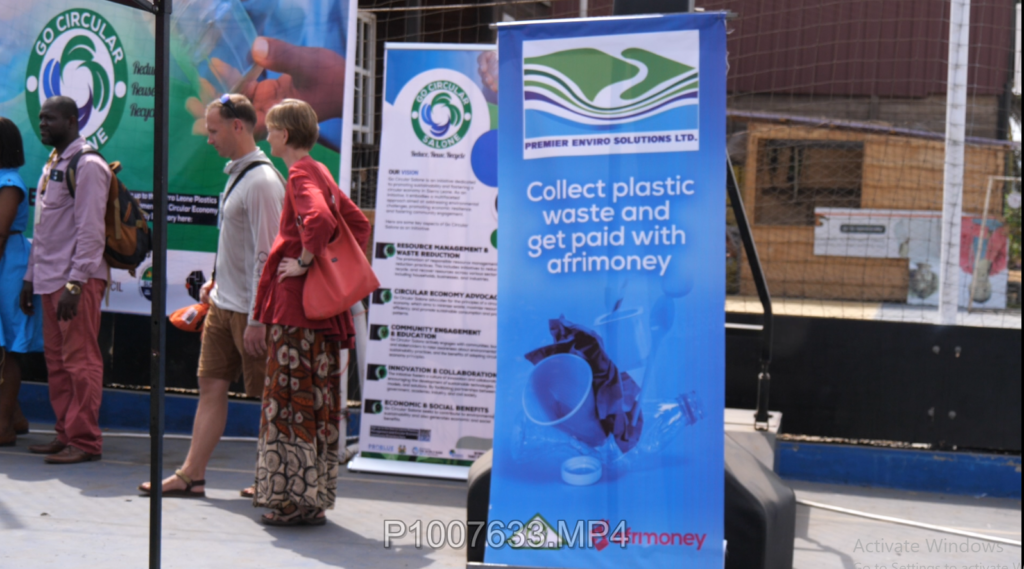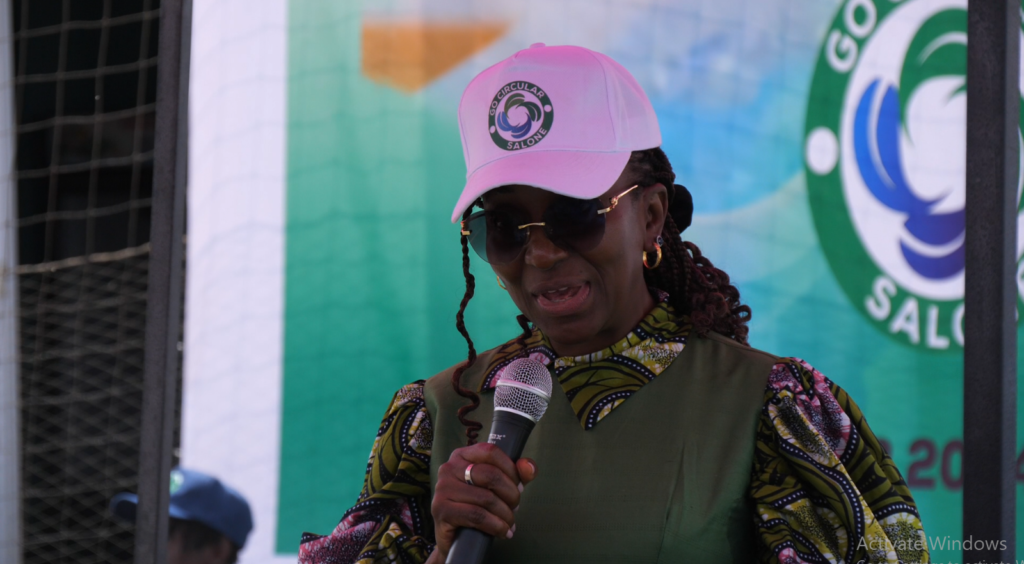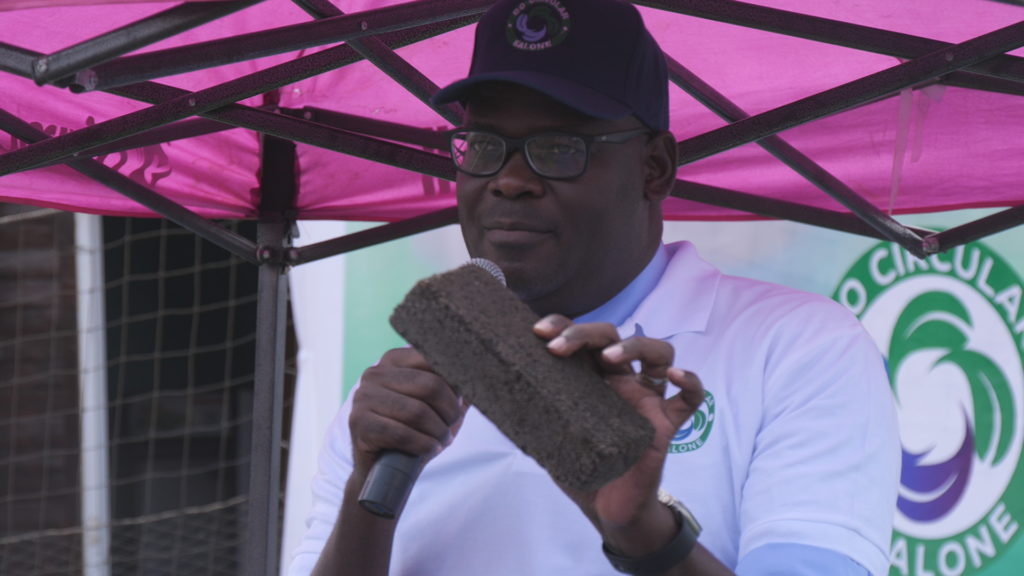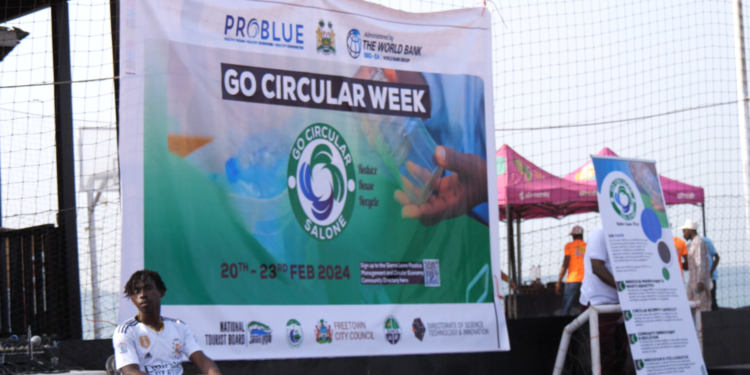By Kemo Cham
Sierra Leone has launched a week-long campaign geared towards ridding the environment of plastic wastes and making the country cleaner.
The Go Circular initiative launched on Tuesday, February 20th, is designed to reduce the use of plastic by promoting multiple usage, with the ultimate goal of preventing plastic pollution, which the government and its partners say threatens the country’s economic development.
Go Circular is an initiative of the World Bank supported Sierra Leone Economic Diversification Project (SLEDEP), which seeks to promote a circular economy in plastics for sustainable tourism development. It is linked to effort at leveraging the country’s tourism potential.
Minister of Tourism and Cultural Affairs, Nabila Tunis, presided over the launching of the campaign at a ceremony at the Sports Zone along the Lumley Beach. She appealed for collective efforts to save the country from the “crisis” of plastic pollution.
“There is more plastic wastes in Sierra Leone today than ever before. Cleaning has become difficult and huge task. It is a crisis that we are dealing with and we need to take action to deal with it,” she said.
“The Tourism for All campaign is closely linked with the Go Circular and sustainable tourism. It has at its core sustainable practices by creating wealth, job creation, peace, partnership, collaboration, collective action, volunteerism, and putting communities at the heart of tourism in a bid to contribute to the Big Five Game Changers of the government of Sierra Leone and the Sustainable Development Goals,” she added.

The Go Circular Week runs from February 20th to 23rd, and there is a line-up of activities within this period that are geared towards raising awareness about plastic pollution and prevention, including a roundtable, workshop, as well as a showcase of circular businesses.
Part of the initiative is to create business opportunities that encourage innovations that reduce plastic waste disposal through maximization of single usage of plastic products.
About 15 businesses that have transformed their operations from using plastic or reducing their use of plastic, will showcase their work during the cause of the week. Hospitality businesses like hotels will also be recognized for their efforts in reducing their plastic use.
Deputy Minister of Environment, Yema Mimi Soba-Stephens, said Sierra Leone being a developing country faces a lot of challenges. Plastic, she noted, has become one of the most popular resources for the population, partly because of its affordability. The problem, she went on, is that most of the plastic products are designed to be discarded, posing potential health effects on humans, animals and marine resources, as well as contributing to the climate crisis.

Tourism Minister Nabila Tunis. Photo credit, Ibrahim Barrie, ManoReporters
A 2017 study funded by Premier Enviro Solutions, a Freetown based social enterprise, revealed that 90 tonnes of plastic waste, comprising 16% of Municipal Solid Wastes, are generated in Freetown daily. About 20 tonnes of these are collected and end up at the dumpsites, according to the study. The remaining 70 tonnes contribute to pollution across the capital city.
The Go Circular campaign was launched at the backdrop of concerns over prevailing heat wave across West Africa.
In Sierra Leone, the Meteorological Agency recently issued a warning of potential dangers associated with prolonged high temperatures.
According to Mrs Soba-Stephens, government prioritises the management of plastic as demonstrated by its development of a policy that was approved by cabinet in March, 2023. She disclosed that a Plastic and Plastic Waste Management Bill was also under development and that it is expected to be presented to parliament soon.
World Bank Country Manager, Abdu Muwonge, said that managing Planet Earth requires that people have to do things differently.
Mr Muwonge said that the Bank’s mission and vision of eradicating extreme poverty means much more care for the environment, adding that what’s happening in Sierra Leone in terms of environmental degradation is a devastation.
“A devastation is happening around us, from cutting trees, to burning, to the way we dispose them off,” he said.
While acknowledging efforts of the government and its partners in doing things differently, the World Bank county boss emphasises the importance of collective action to achieve the goal.
“One way or the other, we are all part of this problem. But we have to shift our ways of doing things by making sure that we gradually take note of mother nature and improve on how we really take care of mother nature,” he said.
“If we are contributors we also should be part of the solutions,” he stressed.
According to Mr Muwonge, the team in SLEDEP, together with the Bank’s and other partners’ support, are trying to create alternatives, with the aim of creating jobs. This, he said, is already happening in Sierra Leone.
On display in the premises of the occasion was one of the country’s innovative water companies, Chrystal Water, which said it has moved from the use of plastic bottles to recycled containers.

World Bank Country Manager for Sierra Leone, Abdu Muwonge, displays a brick made from recycled plastic. He says businesses like the manufacturer of that brick, Premier Enviro Solutions, should be supported
Premier Enviro Solutions, which focuses on environmental health services, used recycled plastics to make bricks for construction, in place of cement.
Mr Muwonge says such businesses need to be given more opportunities to grow.
“What’s needed is really to give these innovations space to thrive and grow and do things at scale. That way we are able to diversify,” he said.






















